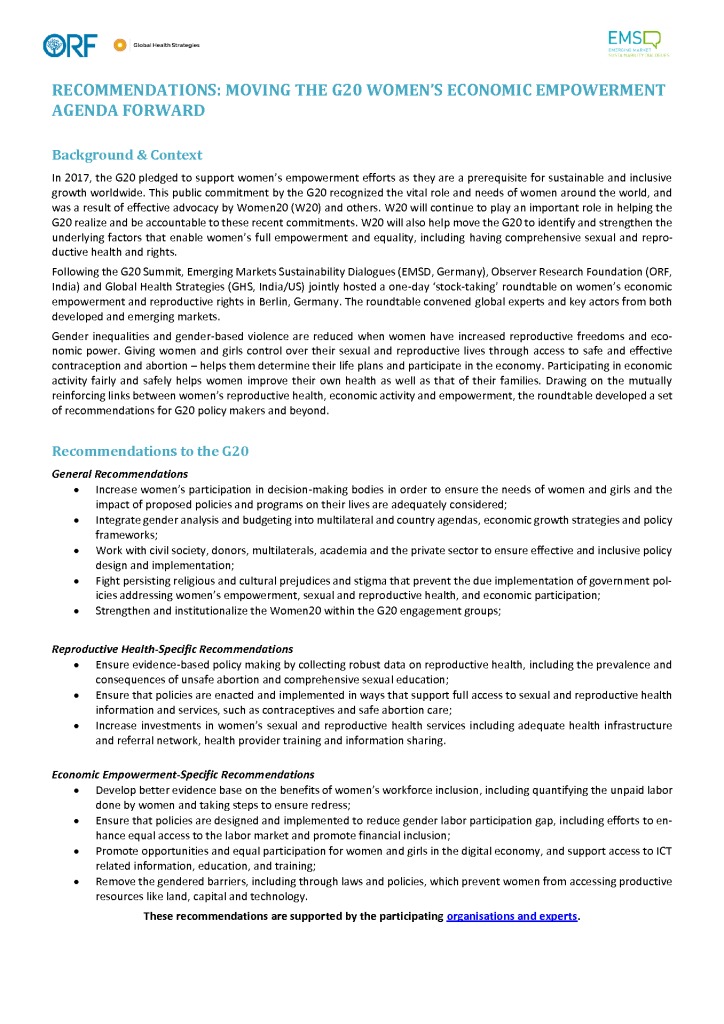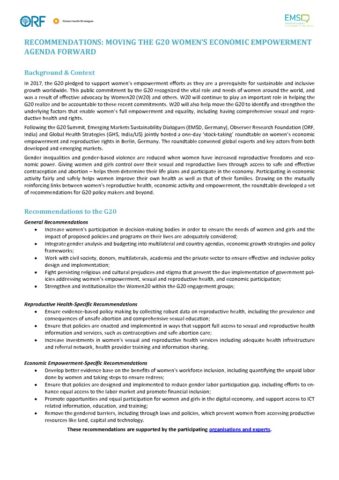International Roundtable on Women’s Economic Empowerment and Reproductive Health
Archive Economic Policy Forum

The Emerging Market Sustainability Dialogues (EMSD), together with EPF’s member think tank Observer Research Foundation (ORF) and Global Health Strategies (GHS), hosted a roundtable on women’s economic empowerment and reproductive health and rights on 14 July 2017 in the GIZ offices in Berlin.
Following the G20 Summit on 7 and 8 July in Hamburg, the one-day roundtable took stock of current global as well as country-level dynamics regarding women’s rights. The event focussed on both socio-economic empowerment as well as fundamental sexual and reproductive health and rights.
The discussions between international experts, activists and representatives of the current and future Women20 (W20) presidencies highlighted how much gender equality is still an elusive goal in most countries around the globe. This is not only underscored by the difficulties to find unequivocal messages in global bodies in this regard, but also starkly illustrated by persisting inequalities and the success of reactionary movements in countries which long embrace equality of men and women constitutionally and legally.
One of the key messages evolving from the discussions was that women’s empowerment cuts across many different sectors but is still often addressed in separate silos, if at all. In particular, participants agreed that the availability of and access to safe reproductive health services is the prerequisite for all other aspects of women’s empowerment. Policies must follow an integrated approach addressing socio-economic gender equality, sexual education and reproductive health in a coherent manner.
Furthermore, participants agreed that policies (including affirmative action measures), legislation and business strategies often bear a negative effect for women’s inclusion in social and economic activities, often not by purpose but by ignorance and negligence on the part of the respective decision-making bodies. Bringing women’s voices into these decision-making bodies is therefore key for more gender equality in all aspects of life.
Paying special attention to the outcomes of this year’s G20 with respect to women empowerment, and gauging the possibilities for the upcoming Argentinian presidency, the main messages and recommendations for policy-makers have been summarised in a joint one-page policy brief to be handed over to the Argentinian W20 Chair.
For further documentation, please see:
- Agenda
- Participants list
- Recommendations: Moving the G20 Women’s Economic Empowerment Agenda Forward.



